LOFF’s $1 Million Milestone
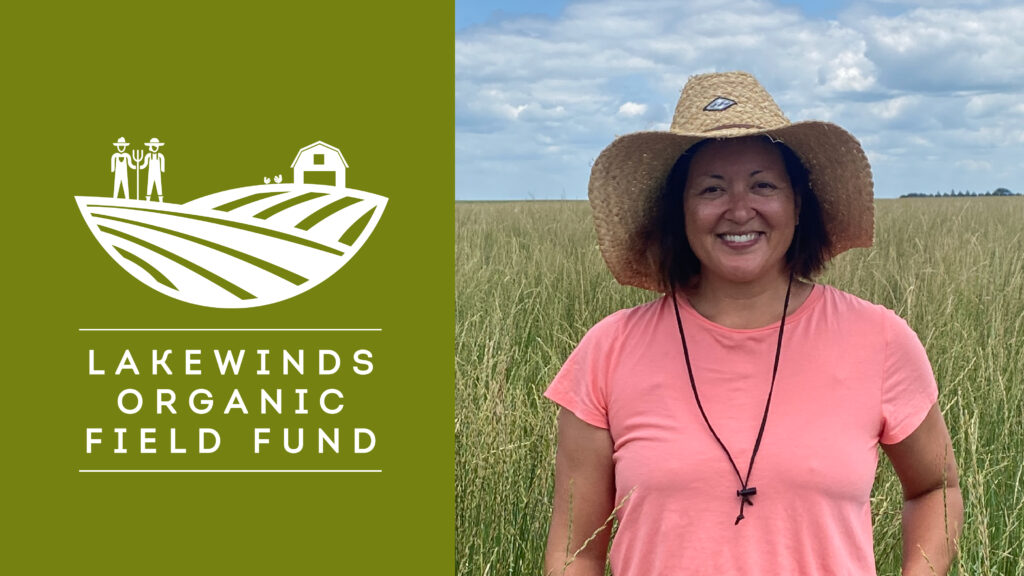
Back in 2011, Lakewinds launched a bold effort to nurture a healthy, sustainable, and prosperous local food system. Fourteen years later, our Lakewinds Organic Field Fund (LOFF) has hit a major milestone: more than $1 million in grants awarded to more than 100 farmers in the history of the program!
Those dollars have led to many tangible improvements on local farms, from irrigation systems to deer fencing, pack sheds to egg washers. LOFF grant recipients tell us the funds have made it possible to do critical improvements without waiting to save up, fund tests on their farm, or help them qualify for loans so they can tackle larger farm projects.
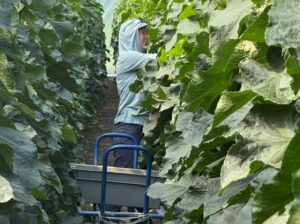
The LOFF grant that Farmer Becca Rudebusch from Seeds Farm received in 2019 allowed her to build the first high tunnel on her property. “With the changing climate, they’re the most secure growing space we have,” says Becca. “Now we have heaters and more ventilation in our tunnels to extend the growing season more and create a disease-free zone — ventilation is important for that.”
Test and Try New Systems
Seeds received another LOFF grant this year to test a tractor GPS unit. “It’s something we thought would be a great idea, but it wasn’t proven,” says Becca, who quickly saw the benefits of the system. “It’s hard to spend your own money on something that’s not tried and true, but in both cases, it’s really solidified our niches. It’s a new system that works well for us.”
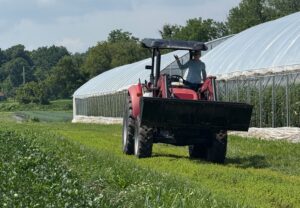
Fellow farmers can also benefit from LOFF grants given to farmers who test new systems and share the results. In 2024, Twin Organics, a neighboring farm of Seeds, received a LOFF grant to test biodegradable twine and clips for growing their tomato and cucumber plants. The plastic clips they used prior to that were too difficult to remove at season’s end, so they were forced to throw away all of the dead vines. With biodegradable clips, they could potentially compost it all instead.
The LOFF grant helped Twin Organics buy and test the new materials that they otherwise were hesitant to try. Luckily for the farm and the planet, the biodegradable twine and clips were a success, and now other farmers in the area, like Becca, are starting to use them, too. As a result, literally tons of organic matter will become compost instead of going into the landfill.
Helping Farms Diversify
Some LOFF grants have gone to farmers looking to test new crops. About 10 years ago, Tim Kirkman of Fox & Fawn Farm used funds for a “new crops project” that tested how different types of trees and shrubs would grow on his farm. While some crops, such as seaberries and pawpaws, didn’t work out, others are only now starting to bear fruit, like chestnuts and hazelnuts.
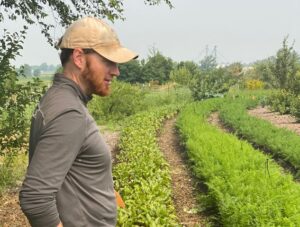
Tim says it’s all part of the learning process. “I’ve been able to offer red currants, white currants, gooseberries, beach plums, and apples in our CSA program,” he says. “LOFF allowed me to experiment with new fruits and nuts on our farm, taking so much of the risk out of my trials and giving me experience in making recommendations to other growers.”
Vital Equipment Within Reach
Farmers often use funds to pay for crucial farm infrastructure. Naima Dhore of Naima’s Farm completed such a project in 2024, when LOFF funds helped her install electricity to power fans in her hoop houses. “We have a fan in our high tunnel which allows us to have a consistent temperature that we need to produce the tomatoes that we’re growing,” said Naima. “It really is expanding our operation on a different level.”
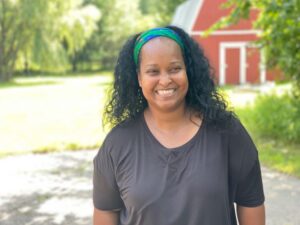
Farmer Wendy Johnson of Jóia Food & Fiber Farm received funding nine years ago to buy a cultivator. She was in the process of transitioning her farmland to organic and the new equipment enabled her to add new row crops to the rotation. Now they grow perennial crops, including Kernza®, and raise livestock. With last year’s LOFF grant, Wendy built mobile water and shade units for sheep and cattle.
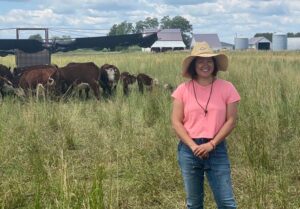
“Small and mid-sized farms are the backbone of our country, creating the food security we need. Yet they are the most vulnerable to climate change, ag policy, and the farmers are overworked and underpaid,” says Wendy. “The farmers LOFF supports are the most vulnerable farmers in our region, yet are growing the most food — healthy, organic food — for people. LOFF creates a huge impact because Lakewinds sees that need and helps fill that huge gap.”
LOFF grants would not be possible without everyone in our co-op community. From hard-working staff to shoppers to farmers who grow our food, everyone plays a part in Lakewinds’ success, which allows programs like LOFF to happen.
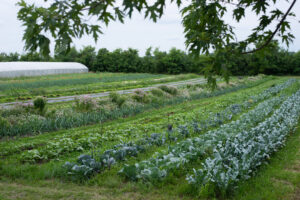
“For food security, it’s important to sustain our strong food system locally,” says Becca. “It’s important to put your money where your values are. The grants have helped our farm stay relevant and efficient, so we can be here for generations.”
Learn more about the LOFF program and the farmers who have received grants in years past.
